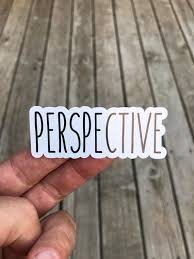
The truth is of course that what one calls the interruptions are precisely one’s real life–the life God is sending one day by day. – C.S. Lewis
I have a small collection of autographed baseballs. Aside from being a fan of baseball, I’m not exactly sure how I got started on the collection. But several autographed baseballs from Hall of Famers are set atop one of my office bookshelves.
The most prized baseball I have was given to me by my father. It was a birthday present. Growing up a St. Louis Cardinal fan, the autograph ball is from none other than Stan “The Man” Musial.
Musial broke into the Major Leagues at the age of 20. His 22-year stint with the Cardinals, the only team he played for, earned him a spot in Cooperstown. Musial ended his career with a .331 batting average, 3,630 hits, 475 home runs, and 1,951 runs batted in.
Unfortunately, I never got to see Stan Musial play. His days in the game preceded my birth, but as a Cardinals fan, his legacy is still sacred.
Musial was off to a fast start in his career. In 1943 he won the first of seven batting titles. His career was on a fast track–until it wasn’t.
Like many of his teammates in that era, duty called and in 1945, Musial joined the Navy. While that season was lost. He rejoined the Cardinals in 1946 and went on to play a stellar career.

Life, like Musial’s and countless thousands of others, is filled with curveballs that are thrown our way. Things that we didn’t see coming. Interruptions, if you will.
The past few months may seem like one colossal interruption that you’d soon rather forget. I get it. Yet, here we are.
As a leader, how you handle interruptions is important. Consider this the next time you are faced with interruptions.
Interruptions give you time to regroup
It’s easy to see interruptions as a nuisance and get frustrated. But it’s how you react during this time that will cause it to be beneficial or a waste of time. As a leader, it’s up to you to make it happen.
Interruptions give you time to rethink
What you learn and the lessons you apply during times of interruption can be invaluable going forward. It’s exactly what many have had to do during this pandemic. Learning how to pivot and make adjustments have caused many to get out of ruts and old ways of doing things that they may not have been comfortable doing prior. Click To Tweet Not all interruptions are setbacks if you use them to your advantage.
Interruptions give you a chance to re-emerge stronger
While your interruptions may have been seen as delay and loss, maybe now you can see it as a part of a greater plan to position you to be stronger than before. How you use your time of interruption can be beneficial only as you change your attitude towards it. Click To Tweet
Final Thoughts
What have you learned during these past few months? How have you learned to pivot and what other lessons have you learned? Permit me to encourage you to embrace the interruptions that come your way. What you can learn and how you re-engage will make all the difference.
For Musial, his interruption was a call to duty. When his service ended, he returned as strong as ever and finished a Hall of Fame career. Your interruption is not the end, it’s just a pause. Embrace it and learn from it.
©2020 Doug Dickerson

